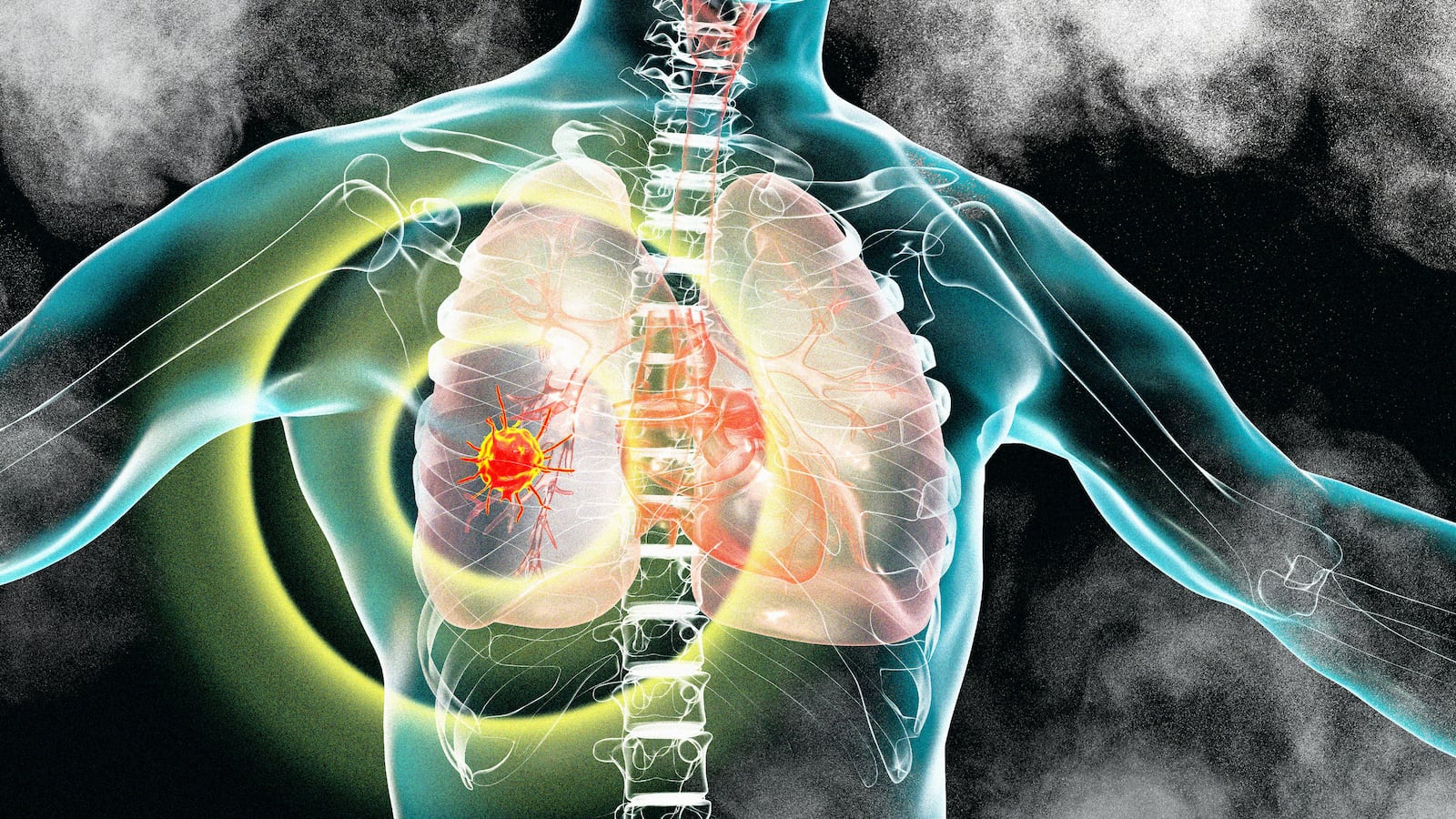The deleterious effects of air pollution range from the trivial (but still bad) to the very relevant (and very, very bad.) Pro athletes and chess players perform worse when exposed to high levels of air pollution, and toxic pollutants like PM 2.5 have been linked to lung inflammation, strokes, and death. Especially worrying is air pollution’s link to cancer: The European Environment Agency estimated last year that more than 10 percent of cancers on the continent are caused by exposure to pollution.
But for years, the specific way in which air pollution caused cancer was up for debate. Traditionally, researchers believed that environmental factors associated with cancer directly caused a person’s DNA to break and be repaired in an error-prone manner that could plant the seeds for a malignant tumor cell. This theory has been proven out for UV and other forms of radiation, for instance, but for fine particle air pollution known as PM 2.5, the science isn’t as clear. PM 2.5 are tiny droplets in the air—smaller than a grain of sand, a human hair, dust and pollen particles—that can be a mixture of metals, organic compounds, and hundreds of different chemicals. They form as a result of pollution emitted by vehicles, power plants, fires, and smokestacks, and people inhale unhealthy levels of them every year.
In a new study led by researchers in the U.K., the relationship between PM 2.5 and a type of lung cancer found in nonsmokers and light smokers took front and center. The team looked at nearly 33,000 instances of this lung cancer in the U.K., Canada, South Korea, and Taiwan; and gene-edited mice that developed lung cancer when exposed to PM 2.5. Based on these experiments, they were able to confirm the existence of a second pathway that causes cancer: widespread lung inflammation, resulting from air pollution. Their results were published on April 5 in Nature.
This new theory hinges on the notion that mutations that can lead to lung cancer may already exist in small numbers of a person’s cells, having arisen on their own due to random change. Pollutants like PM 2.5 then change the environment of the lungs to make it easier for these cells to proliferate and grow into a fully fledged tumor.
“The idea is that exposures to carcinogens could promote cancer without actually doing anything to the DNA,” Serena Nik-Zainal, a medical geneticist at the University of Cambridge who was not involved in the study, told Nature News. “Not every carcinogen is a mutagen.”
As part of a multi-institutional study to pinpoint the causes of cancer called TRACERx study, the researchers focused on lung cancer with a mutation in the EGFR gene, which is involved in cell growth and survival. They first mapped cases of EGFR lung cancer to a country’s levels of PM 2.5 pollution, finding that high levels of the particulate matter was linked with increases in the cases associated with the mutation.
But then they went a step deeper, genetically engineering mice to possess a mutated human EGFR gene that would lead to lung cancer. The researchers exposed 31 of these mice to two different levels of fine particulate matter and measured cancer development seven weeks later.
The mice exposed to low and high concentrations of particulate matter developed more lesions on their lungs compared to mice that were not exposed to the air pollution. Mice exposed to the highest levels of pollution also exhibited larger clusters of mutated EGFR cells in their lungs.
But importantly, the particulate matter-exposed mice did not have more mutations in their tumors than the control mice, suggesting the pollution was not causing their DNA to change. Rather, the researchers found increased numbers of immune cells called macrophages in the lungs of mice exposed to air pollution. These immune cells release an inflammation-causing protein, and the researchers strongly suspect the resulting inflammation is what fuels the growth of pre-existing mutated EGFR cells.
Allan Balmain, a cancer geneticist at the University of California San Francisco, wrote in an accompanying commentary that the research was a “multidisciplinary analytical and technical tour de force that helps to show how pollution interacts with lung cells to promote the changes that eventually result in malignancy.”
“These results have major implications for how to think about cancer prevention,” he added, since the researchers showed that mice treated with an antibody targeting the inflammatory protein prevented lung tumors from forming, even when exposed to air pollution.
In the short term, cancer researchers can focus on identifying foods or drugs that can protect against the dangerous inflammation brought upon by noxious air pollution. However, to truly address this crisis for humankind, and not just individuals who can access these therapies, we need widespread change as soon as possible. The best, and the only long-term solution, is to stop emitting air pollution.









